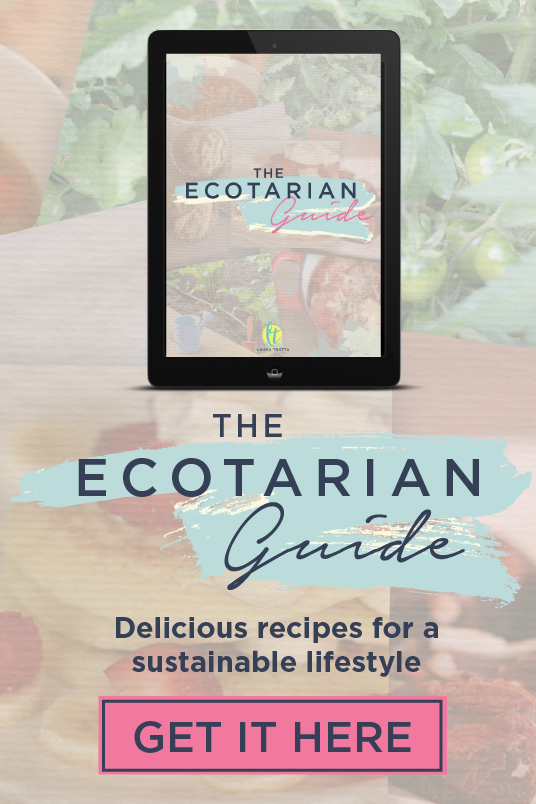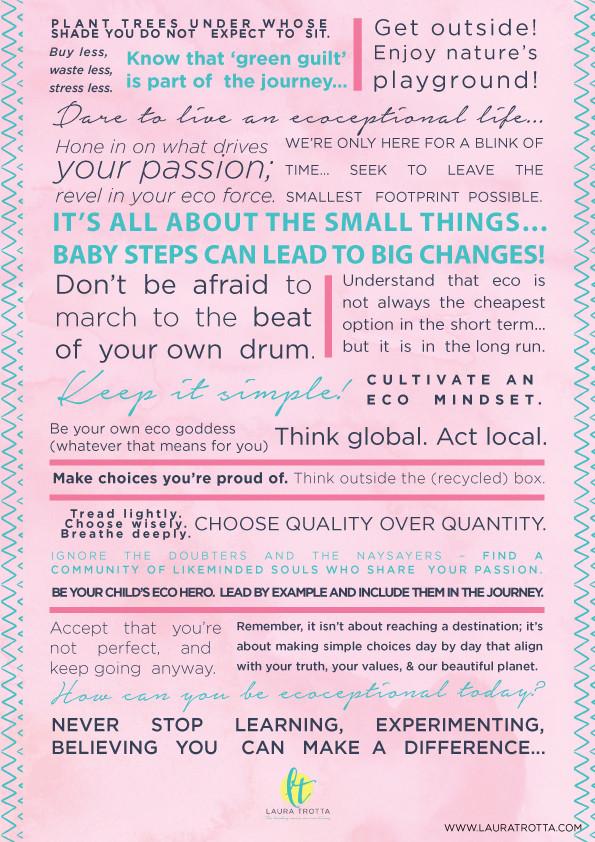Even when you have meal planning seemingly under control, your household can still generate a fair amount of food scraps that can easily end up in the rubbish bin.
Whether it’s food scraps from peeling and topping and tailing vegetables, or scrapings from dinner plates (or meals your kids have decided to turn their noses up at), there’s several options available to turn these scraps into something useful and keep them out of your bin…. and local landfill!
Podcast: Play In New Window
Why is it Important to Keep Food Scraps out of the Rubbish Bin?
Every year Australians generate around four million tonnes of food that ends up as landfill – that’s a lot!!
The issue with food in landfill that it breaks down anaerobically (in the absence of oxygen) and in the process releases methane, a toxic greenhouse gas that is 20 times more potent than carbon dioxide when released to the atmosphere.
By keeping food scraps out of your rubbish bin you’re not only doing a little bit to help slow climate change, you’re also being savvy and using your resources wisely……which can save you a heap of money over time too!
Here’s my three favourite ways to keep food scraps out of the rubbish bin…….
1. Reuse Food Scraps
Before you toss the food scraps aside, consider whether they can be reused – either by being recreated into another meal or being transformed to another use entirely.
Broccoli stalks are one of the culprits that’s often tossed aside, when they can easily be chopped up and incorporated into stir fries, casseroles or pasta sauces. I often freeze the entire stalk and add them to my weekly pots of stock for soups and casseroles. I also add garlic and onion skins to stock and even corn cobs!
Lonely bread crusts can be ground up and added to rissoles and patties. Skins of vegetable and fruits (such as watermelon) can be pickled and even egg shells can be reused. Simply grind egg shells in a food processor and add them to potting mix or bury them in your soil. They’re a fabulous calcium supplement for your garden and they’re also great to deter garden snails!
2. Compost Food Scraps
Composting fruit and vegetable scraps is a good old fashioned way to turn waste into something productive……a nutrient dense soil conditioner!
Rotating units are the most effective and easiest to operate as you can regularly turn the contents to aerate and mix them. You can also bury your vegetable scraps straight into the garden, but you need a spot where they won’t get disturbed by pets or pests or you might find your scraps spread everywhere soon after. 😉
If you don’t have a large backyard to house a compost bin or you live in an apartment, a Bokashi Bin may be a good option for you. The added benefit of using a Bokashi Bin over traditional composting methods (and even worm farms) is that meat, dairy and bread scraps can be added!
Bokashi Bins ferment food scraps in an anaerobic environment using microbes that are added in a fine layer of mix to the surface. The resulting juice is nutrient rich and alive with micro-organisms and can be used in the garden (just dilute 1 teaspoon of juice to 2-3 L water) and around the home. You can even pour the concentrated Bokashi juice directly into kitchen and bathroom drains, toilets and septic systems to help prevent algae build-up and control odour!!).
Click here to buy a Bokashi Bin.
3. Feed Food Scraps to Your Productive Pets
Worm farms are yet another handy way to turn food scraps into nutrient rich liquid fertilizer for your garden. Like juice from the Bokashi Bin, worm juice needs to be diluted prior to adding it to plants and soils. Discover what it takes to set up a worm farm here.
If you have the space – and you don’t actually need a lot – just a few chickens can make a significant dent on your kitchen scraps. A major benefit of chooks is that if you buy the laying kind you will also be rewarded with fresh eggs regularly! Click here to discover 7 Reasons to Keep Chickens.
Cultivating a “waste not want not” mindset in the kitchen when it comes to food scraps has plenty of benefits for your household. By reusing, composting or feeding food scraps to productive pets, you’ll not only keep rotting smells out of your bin, you’ll help reduce greenhouse gas emissions, save money and create some useful by-products along the way!!!!
What’s your favourite tip to keep your food scraps out of your rubbish bin? Share below!!
Podcast: Play in new window | Download
- Sustainable Home Design- factors to consider to maximise sustainability - July 28, 2022
- Advantage and Disadvantages of Tiny Houses - May 31, 2022
- How School Strike 4 Climate is Empowering Youth to Fight for Their Future - May 1, 2022


 Laura Trotta is one of Australia’s leading home sustainability experts. She has a Bachelor of Environmental Engineering, a Masters of Science (in Environmental Chemistry) and spent 11 years working as an environmental professional before creating her first online eco business, Sustainababy, in 2009. She has won numerous regional and national awards for her fresh and inspiring take on living an ‘ecoceptional’ life (including most recently winning the Brand South Australia Flinders University Education Award (2015) for the north-west region in SA and silver in the Eco-friendly category of the 2015 Ausmumpreneur Awards). With a regular segment on ABC Radio and with her work featured in publications like Nurture Parenting and My Child Magazine, Laura is an eco thought leader who’s not afraid to challenge the status quo. A passionate believer in addressing the small things to achieve big change, and protecting the planet in practical ways, Laura lives with her husband and two sons in outback South Australia.
Laura Trotta is one of Australia’s leading home sustainability experts. She has a Bachelor of Environmental Engineering, a Masters of Science (in Environmental Chemistry) and spent 11 years working as an environmental professional before creating her first online eco business, Sustainababy, in 2009. She has won numerous regional and national awards for her fresh and inspiring take on living an ‘ecoceptional’ life (including most recently winning the Brand South Australia Flinders University Education Award (2015) for the north-west region in SA and silver in the Eco-friendly category of the 2015 Ausmumpreneur Awards). With a regular segment on ABC Radio and with her work featured in publications like Nurture Parenting and My Child Magazine, Laura is an eco thought leader who’s not afraid to challenge the status quo. A passionate believer in addressing the small things to achieve big change, and protecting the planet in practical ways, Laura lives with her husband and two sons in outback South Australia. 


